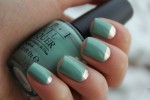
与生活有关的英语作文【一】
Everyone may encounter a scene when he or she wonders what the meaning and purpose of life is. Answers to this question vary from person to person. As for me, I agree with the view that the meaning of life is to discover your gift and the purpose of life is to make the best of it.
On one hand, one's gift could be the source of his inner happiness, providing spiritual impetus and correct orientation. Take the world-renowned Chinese pianist Lang Lang as an example. His gift was noticed before he was 3 years old, which laid the foundation of his glorious life. On the other hand, proper use of talent helps people to realize their value in a positive way, thus making contribution to the society as a whole. For instance, Isaac Newton made a universally amazing discovery by digging into his gift and finding the Newton's law of gravitation.
In conclusion, let's search for our true gift and utilize it to the fullest to achieve a happy and valuable life.
与生活有关的英语作文【二】
What our life will be like in the future?When I was a little boy,I always asked myself this question.At that time,I had no idea what Internet was.But now,we use it every day.We can't live without it.Internet is become so popular and so convenient.
Just forget it.What our life will be like in the future?For example,in ten years.I think that in ten years our life will be much more colorful,our computer will be much powerful,and we can do almost everything on the internet including seeing a doctor.What about your future life ?Will you share with me?
与生活有关的英语作文【三】
Sometimes I dream about life in the future. What will it be?
Perhaps some people will go to the moon for a holiday or even live on the moon,and some scientists will build cities under the sea to make people live there. We can have a medical examination or do some shopping without leaving our homes,which makes the life more convenient. Maybe we will also do some shopping and work at home.
And I'm sure there'll be more educational programmes on the radio or TV or by the Intemet or videophones,so perhaps some children won't need to go to school every day. They'll study at home.
In the future,all electric equipment at home is under the con-trol of computers. People can learn about the situation of the house by working on the computer at the office. No people like doing housework. Maybe each family will have a robot. Every day we can tell the robot what to do-shopping,housework and so on. believe the dream will come true some day.
与生活有关的英语作文【四】
(一)改写一般疑问句:
(1)原句中有be动词的,将be动词提前,其他顺序不变。
例如:Thisisacat.变为Isthisacat?
(2)原句中有情态动词的(can/may/shall/would)将情态动词提前,其他顺序不变。例如:Hewouldlikeapie.变为Wouldhelikeapie?
(3)原句中是一般动词的,在句首加助动词do或dose(用于主语是第三人称动词单数的句子),其他顺序不变。例如:Iplaytheguitar.变为Doyouplaytheguitar.
(4)原句中的some变any。
注:以情态动词开头的一般疑问句,并且要求对方做肯定回答的`some不变。
(5)原句中的第一人称改为第二人称。例如:Iamanurse.变为Areyouanurse?
(6)以dose开头的一般疑问句,原来动词的第三人称单数形式要变回原形。例如:Hereadsastorybook.变为Dosehereadastorybook?
(二)改写否定句:
(1)原句中有be动词的,直接在be动词后面加not。例如:Itisadog.→It’snotadog./Itisn’tadog.
(2)原句中有情态动词的,直接在情态动词后加not。
例如:Iwouldlikeahotdog.→Iwouldnotlikeahotdog.
(3)原句中是一般动词的,在一般动词前加don’t或doesn’t(用于主语是第三人称单数的句子),doesn’t后面用原型。例如:Iseethreehamburgers.→Idon’tseethreehamburgers.
原句中的some变any例如:Ihavesomebreadan
dmilk.→Idon’thaveanybreadandmilk.
(4)以let开头的祈使句,如果是letus或letme,直接在其后加not;如果let后面其他人称代词宾格(you、him、her、them、it)就在let后面加助动词don’t。例如:Letusgotothepark.→Letusnotgotothepark.再如:Letthemdohomework.→Don’tletthemdohomework.
(三)对划线部分提问:
对划线部分提问,就是先把一个陈述句的划线部分去掉,然后变为一个特殊疑问句:一是特殊疑问句+一般疑问句;
二是特殊疑问句+陈述句(对主语或主语的定语提问,therebe结构除外)
⑴划线部分是人,用who提问。
⑴划线部分是主语,用who提问,who后面的动词要用第三人称单数形式。如:Whois;Wholikes;Whohas?
方法:who+原句的剩余部分
例如:①HelenandMikearelisteningtomusic.
→Whoislisteningtomusic?
②Ihavesomemodelplanes.
→Whohasanymodelplanes?
⑵划线部分是表语,用who提问。
方法:Who+剩余部分的一般疑问句形式
⑵划线部分是事或者物,用what提问。
方法:what+剩余部分的一般疑问句形式。
注:如果原句是therebe句型,直接用What’s+地点状语来提问。例如:①Wewouldliketobuysomethingsforaparty.
→Whatwouldyouliketobuyforaparty?
②Therearealotofcakesintheplate.
→Whatisintheplate?
⑶划线部分是物主代词或名词所有格,用Whose提问。
方法:⑴划线部分是主语的定语时,Whose+剩余部分
例如:Ourclassroomisbright.
→Whoseclassroomisbright?
⑵划线部分是表语或表语的定语时,Whose+剩余部分的一般疑问句形式例如:①ThewomanisSuYang’steacher.
→Whoseteacheristhewoman?
注:对某部分的定语提问,被修饰的部分跟随特殊疑问句往前提②ThispurseisYangLing’s.
→Whosepurseisthis?
⑷划线部分是地点,用where提问。
方法:where+剩余部分的一般疑问句形式
例如:TheyarehamingaMathslessonintheclassroom..
→WherearetheyhavingaMathslesson?
⑸划线部分是“多少”,用howmany或howmuch提问。
方法:⑴句中是可数名词的用Howmany+剩余部分的一般疑问句形式例如:Therearefifteentreesintheplayground.
→Howmanytreesarethereintheplayground?
⑵句中是不可数名词的用Howmuch+剩余部分的一般疑问句形式例如:Ihaveaglassofjuiceforbreakfast.
→Howmuchjuicedoyouhaveforbreakfast?
⑹划线部分是时间,用when或whattime(具体的几时几分)提问。方法:⑴when+剩余部分的一般疑问句形式
例如:SuYangandSuHaiareathomeonSundaymorning.
→WhenareSuYangandSuHaiathome?
⑵问具体的时间直接用Whattimeisit?或What’sthetime?问
例如:It’sthreeforty-five.
→Whattimeisit?或What’sthetime?
与生活有关的英语作文【五】
在英语村里,模拟了现实生活中的四个场景——“城市馆”、“自然馆”、“生活馆”和“商业馆”,四个场馆中的部分物品和布景都是实物,每个场馆又被分成几个场景,外教和中教轮流授课,我们这次可真是与英语世界来了个亲密接触。在全英语的语言环境和实物情境下,我们对学习英语的兴趣变得前所未有的高涨。就比如说在城市馆里吧,刚进城市馆,一个美丽的大都市——上海的模型立刻呈现在我们的面前,那一个个地标性建筑物的模型,在镭射灯光的映衬下是显得格外的雄伟壮丽,你甚至猜想不到的是在城市馆里居然会有一节能移动的地铁车厢,在最后一节课中,老师终于带着我们“乘坐”了一次地铁,这“地铁”中,老师不停的作者令人捧腹的`动作,使得大家都争先恐后的想“乘坐”一次平时已经坐得习以为常的地铁。每当外教拉开悬挂的粉红色幕布时,或旋转布景板进行场景切换时,我们都会发出声声惊叹,因为,我们以前从来没有这样学习过英语。在商业馆的超市里,甚至可以看到真实的收银机等等实物,我们真实地体验着用英语对话来购物的整个流程,我们扮演着不同的角色,来学习这个角色所要说得话;在生活馆里,老师会用英语生动地为我们介绍各式厨具用品,并且还和我们做游戏,让我们在游戏当中来巩固与加深你对这个英语单词的印象,如果你读得好的话,老师会和你拍手,表示鼓励;在自然馆中,我们仿佛亲身来到了大自然中,有热带雨林,有北极,海洋,在教室的墙上还贴着国家的地图和标着英语单词的国旗名称,在自然馆中最有趣的还是要数在进门时有一座假山,不高的假山上悬挂着一个吊绳,仿佛可以真的用来攀岩一般。我们不时为老师们幽默、生动的语言、表情和肢体动作爆发出阵阵笑声,为同学的精彩表现鼓掌加油。
通过这次活动,让我们在现实生活中快乐的学习了一次英语,也然我的英语水平提高了不少,希望以后这样的实践活动多一些,能够我们丰富我们的课外生活。我期待着有更多的同学能来到这个英语村里来,让他们也体验到更多学习英语的快乐!
与生活有关的英语作文【六】
考辅P42
1.IgaveTomthebook.//
2.Heboughthismothersomeflowers.//
3.Thebridgewasbuiltbyworkerslastyear.//
4.Wehavetofinishtheworktoday.//5.Hewilldohishomeworktomorrow.//
6.Wecleantheroomseveryday.//7.Thewriterspent3yearsonthebook.//
8.Itisabookwithalotofbeautifulpictures.//
9.Thebooksoldverywellduringthefirstweek.//firstweek.
10.Marywastheonlyoneintheoffice.//
11.Shefinishedherworkat10o’clock.//Shedidn’12.Shehadtotakeataxihomebecauseitwastoolate.
13.LizaandMikearrivedattheGreatWallintwohours.
14.Theywerehappytogettothetop.//
15.TheyenjoyedthemselvesontheGreatWall.//
16.ThepostmansentSusanandTommyapaperbox.
17.Theyopeneditandfoundapresentfromtheirfriend.
18.Theybothlikedthepresentandfeltveryhappy.
19.Alicedidn’tfeelwelltoday,soshewenttothehospital.
20.Thedoctoraskedhersomequestions.//
21.Thedoctordidn’tgiveheranymedicineintheend.
(全真1)
1.ThecapitalAirporthasbeeninusefor20years.//
2.ThecapitalAirportisthelargestoneinChina.//
3.Ihavenevertakenaplane.MyfriendLiPing,either.//
(全真2)
1.Fathergave$20formetobuysomebooks.//
2.IwasexcitedwhenIsawsomanygoodbooksinthebookstore.
3.ButsomebookswouldcostmorethanIhave.//
ButIdidn’//(全真3)
1.ManyChinesefriendswenttotheparty.2.Tonywasgivenalotofpresentsbyhisfriends.//Tony’
3.SeeinghisChineseteacheratthepartymadeTonyveryhappy.//(全真4)
1.Iwanttoeatsomething.//2.Therefrigeratorisempty.//3.Bobspentfifteenyuanonthehamburger.///(全真5)
1.Mr.Wangdoesn’tworkinthatfactoryanylonger.//
2.Mr.Wanglefthomeearlierinordertocatchthebus.3.Mr.Wangfindsitnoteasytogetalongwiththatyoungguy.//(专家1)
1.Manypeoplewentshoppingyesterday.
2.Janespent4hourstobuyNewyeargifts.//
3.Shewassotiredthatshecouldn’twalkanylonger.//
(专家2)
1.Myfriendssaidtome,“Areyoufree?”
2.Shewantedmetogoshoppingwithher.
3.Shethinksitapleasuretogoshoppingwithafriend.



















